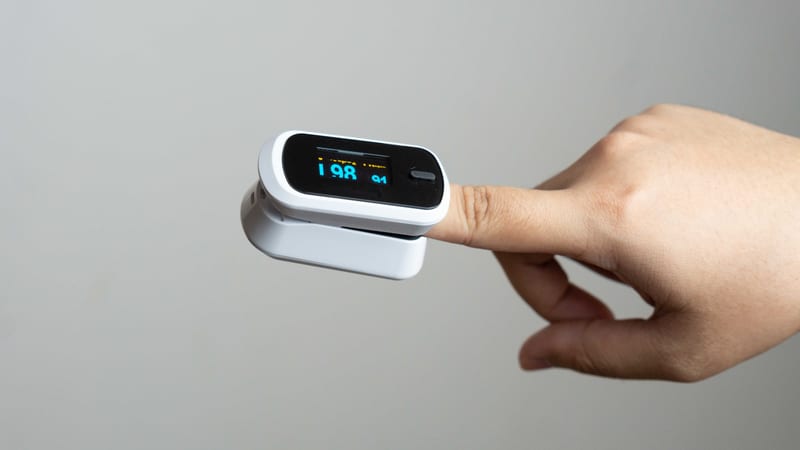Christmas markets & public safety — key legal duties for organisers & retailers

We explore safety considerations around Christmas markets and outline practical steps to comply with relevant safety legislation.
Read more
We make the difference. Talk to us: 0333 004 4488 | hello@brabners.com
AuthorsHannah HobsonClaire BurrowsThorrun Govind
5 min read

The journey to market for international medical devices in the UK is set to change, thanks to a new MHRA statement of policy intent designed to recognise approvals from specific foreign territories to simplify and speed-up the regulatory process.
Here, Hannah Hobson, Claire Burrows and Thorrun Govind explain what the new proposal means for medical device manufacturers that operate in multiple jurisdictions.
The MHRA’s (Medicines & Healthcare products Regulatory Agency’s) statement was published on 21 May 2024. Under the new proposal, the UK Government intends to allow certain medical devices that have been approved by international regulators to be placed on the GB market without obtaining a UKCA marking or UKCA certification.
Under the MHRA’s proposed framework for international recognition, the Government has indicated that it intends to recognise the regulatory decisions and approvals of four comparable regulator countries (CRCs) — namely Australia (Therapeutic Goods Administration), Canada (Health Canada), the European Union (National competent authorities in the member states of the EU/European Economic Area) and the US (Food and Drug Administration).
While the MHRA’s proposal currently refers to four CRCs, there seems to be scope for other countries and jurisdictions to be considered under this framework in future. The MHRA is reportedly considering recognising additional medical device approvals from Japan.
For medical devices to qualify under the proposed framework they must comply with the relevant legislation in the CRC and reflect the device that’s authorised in the CRC in regard to all aspects such as the design, intended purpose and manufacturing process.
The label and packaging should include English language, with the label also including the name and address of the UK responsible person in addition to a physical unique identifier in accordance with the UK Medical Devices Regulations or CRC.
The medical device must comply with GB requirements for electronics compatibility, units of measurement and labelling and comply with the new post-market surveillance (PMS) requirements in the UK Medical Devices Regulations (once they’re in force).
Some medical devices listed in the proposal aren’t to be recognised, such as exempted in-house devices, custom-made devices or products granted market access in the CRC via a recognition route.
The proposed framework details four access routes, notably:
1. Recognition, self-registration with MHRA.
2. Reliance.
3. Reliance with device-specific requirements.
4. Reliance with abridged assessment and device-specific requirements.
Since each access route applies to different medical devices, it’s important for manufacturers to carefully consider the UK Medical Devices Regulations to establish which classification applies for their device and which access route is appropriate.
The manufacturer will be required to prepare documentation and materials, which may vary depending on which access route is followed — as will the requirements for submitting documentation. For example, self-registration with MHRA access route will require the manufacturer to prepare a declaration to an appropriate quality management system or product-specific equivalent. Alternatively, the reliance access route requires the manufacturer to submit a dossier in the International Medical Device Regulators Forum in addition to evidence of approval, a PMS plan and a PMS report or periodic safety update report.
Further details relating to the four access routes can be found in the MHRA’s statement of policy intent.
According to the proposed framework, a certificate of international recognition will be issued that allows medical devices to gain access to the GB market once a manufacturer has successfully complied with the relevant requirements.
This will be separate to a UKCA marking or UKCA certification, which will still be available to manufacturers that wish to access the GB market without using international recognition.
It’s important to note that market access will be granted in accordance with the validity of the certificate issued by the CRC. The medical device must be recertified when the original certificate provided by the CRC expires or in accordance with the quality management system where the CRC — such as the USA — allows indefinite market access.
Dr Laura Squire — Chief Quality and Access Officer at the MHRA — highlighted how the MHRA’s proposal aims to benefit patients by using the knowledge, expertise and approvals of other regulatory bodies. She recognises announcement as “an important step forward towards a robust MedTech regulatory framework that prioritises patient safety, gives patients access to the medical devices they need and ensures the UK remains an attractive market for medical technology innovators”.
The proposed framework lacks full detail and raises several key questions. For example, are the selected CRCs correct? What was the rationale for choosing them? How will certification work in the devolved nations?
The MHRA will also need to consider where the technical dossier will be held and how things will work if it’s only to be reviewed when things go wrong, as well as how post-marketing surveillance will fit in.
We also await information as to which bodies can issue the certificate of international recognition and whether they have enough capacity to do this. With purdah in force given the upcoming election, it will be a good few weeks before we receive any further updates from the MHRA.
For those operating in multiple jurisdictions, the proposed framework offers the opportunity for a more streamlined process. It allows compliance with one primary regulatory regime to place products on multiple markets.
This framework should encourage innovation and support manufacturers in the CRCs to place products on the market — rather than being put off by regulatory hoops.
If you’re looking for support to bring a medical device to market and comply with relevant legislation, talk to our medical device regulatory experts by completing our contact form below.



Loading form...

We explore safety considerations around Christmas markets and outline practical steps to comply with relevant safety legislation.
Read more

We explore what’s known and emerging about GLP‑1 drugs like Ozempic and Mounjaro and what athletes need to consider as interest and scrutiny grow.
Read more

We dig into the Health and Safety Executive (HSE)'s annual statistics for 2024/25 and provide four top tips for employers.
Read more